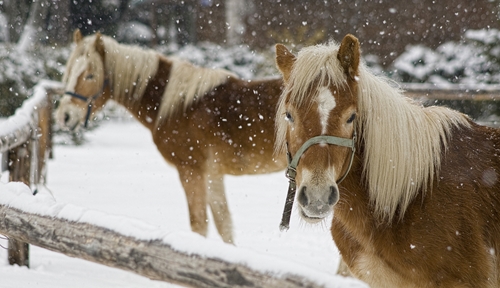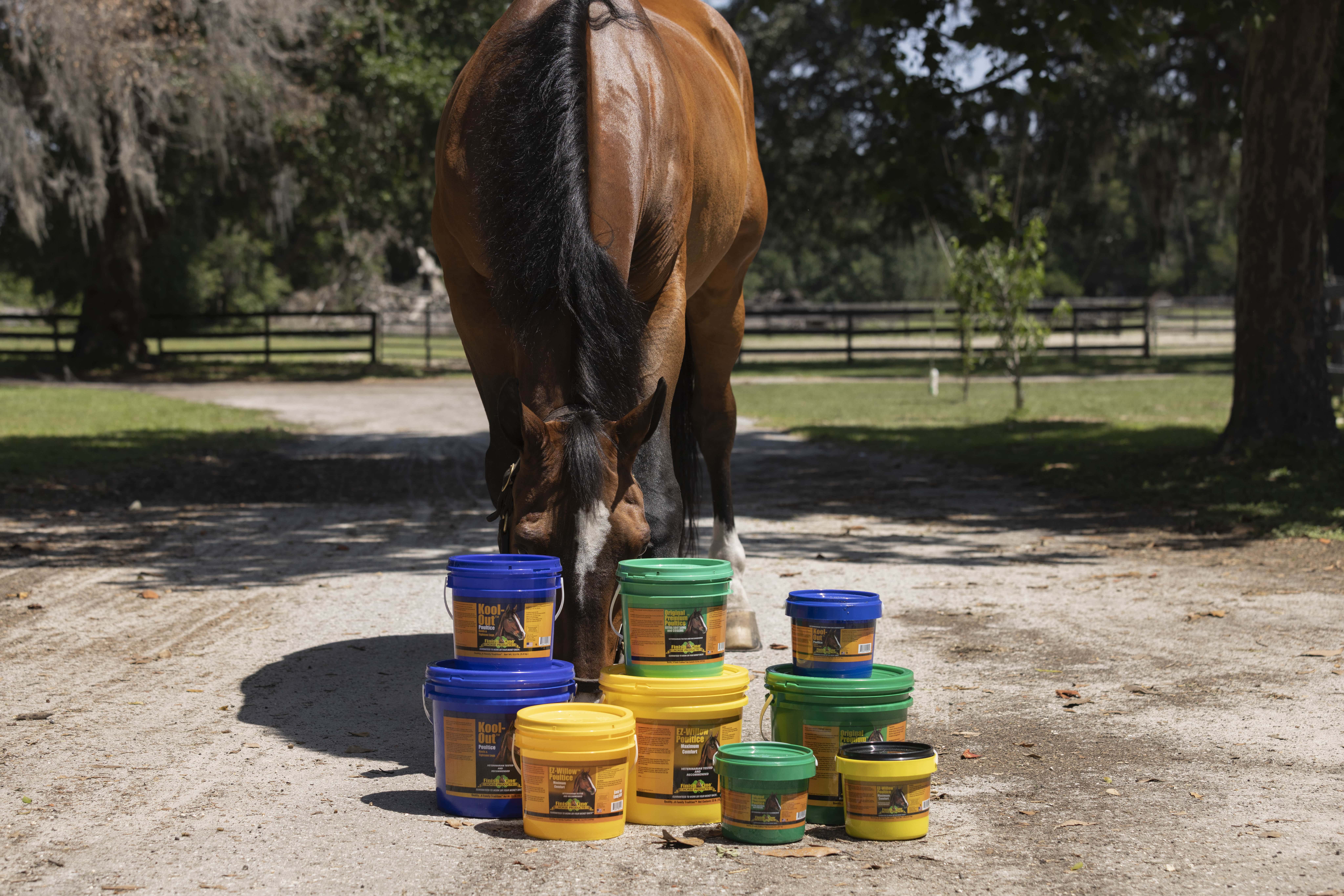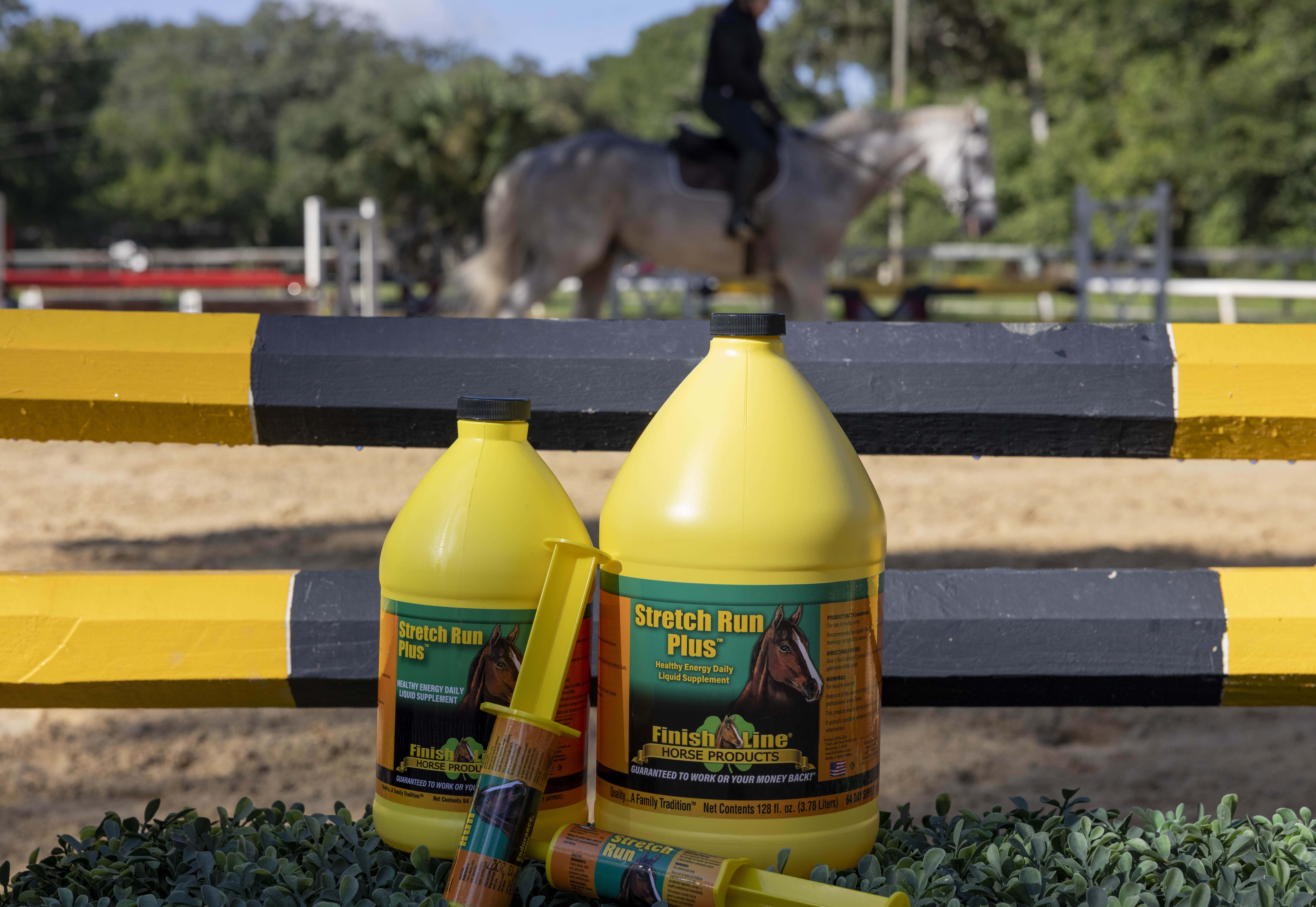Horses need particular care in the winter. If you live in a cold climate, your equines are unable to exercise as frequently as they are in the summer, and winter conditions make them more susceptible to certain illnesses. Be on the lookout for these common winter ailments, and keep your horse healthy throughout the season:
Dehydration
Getting enough water isn’t just a summer issue. When the temperature drops and water in the bucket or trough turns cold, your horse is less likely to drink. In addition, if you don’t check your horse’s water periodically, it might freeze over and prevent your horse from drinking even if it’s willing to swallow the cold water. This, as TheHorse.com detailed, swiftly leads to colic and fecal impaction.
“Use heaters to keep your horse’s water at a temperature warm.”
Use heaters to keep your horse’s water at a temperature warm enough to drink. You can also provide equine electrolytes separately, like Finish Line’s Apple-A-Day or Electrocharge, to support hydration.
Respiratory issues
A poorly ventilated barn or stable coupled with a weakened immune system paves the way for an upper respiratory infection. What’s more, a buildup of dust or mold worsens conditions like asthma or chronic obstructive pulmonary disease.
Check the barn for proper ventilation, making sure the air isn’t too stagnant or breezy. If your horse has a minor cough, try a natural cough syrup like Finish Line’s Air Power.
Mud fever
Mud fever, known among veterinarians as pastern dermatitis, is a bane in the eyes of any horse owner. It’s caused by Dermatophilosis congolensis, a bacteria that thrives in wet conditions, so be on the lookout if you live in an area that receives a lot of rain or snow. The constant transition between wet and dry causes the equine’s skin to chap, creating a pathway for bacteria to enter the body. According to Horse and Hound, the bacterium infects the skin and spreads threadlike tentacles, leading to inflammation. Signs of mud fever include discharge from a wound, crusty scabs, moist lesions, lameness, hair loss and, in extreme cases, deep fissures in the animal’s skin.
“The best treatment for mud fever is prevention.”
As with most conditions, the best treatment for mud fever is prevention. Keep your horse out of muddy, snowy or slushy areas, and make sure it has clean, dry bedding at all times. Check that your horse’s legs are dry before exercise or turnout, and apply a cream to protect the skin against bacteria. You can also use horse supplements that support healthy skin like Finish Line’s Feet First.
If your equine does get mud fever, keep it stabled until the condition clears. Wash the affected area with an antibacterial shampoo to remove the scabs such as Finish Line’s First Aid or Herbal Shampoo. Dry your horse completely, then clip the coat and apply an antibiotic ointment. If the condition is serious and the bacteria penetrates deep in the skin, contact your veterinarian. Your horse may need to be sedated to remove the scabs and receive oral antibiotics.
Soft feet
Horses in wet conditions are also in danger of developing soft feet. As the outside water penetrates the hoof, it softens the area and makes the foot less able to absorb shock. Wet hooves are also more susceptible to cracks and chips through which bacteria can enter, leading to abscesses or thrush.
Supplements like Feet First also support healthy hooves, helping your horse withstand wet conditions. As a separate post from TheHorse.com detailed, supplements are incredibly beneficial if your horse can’t get the proper nutrients from its feed.
“Lots of horses today are fat, so people back off on feeds, then the horse doesn’t get proper levels of vitamins and minerals in his diet,” Ilka Wagner of Equine Veterinary Services in Texas explained to TheHorse.com. “With some of the new supplements, you can feed two scoops, and that supplies all the vitamins and minerals needed per day.”
Although most people in traditionally cold areas are enjoying an unusually warm fall, the icy winds and snow flurries of winter are on their way. Make sure you have a steady supply of feed, equine supplements and prescribed medications on hand in case your horse comes down with a winter illness.








